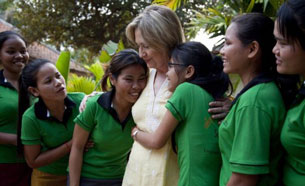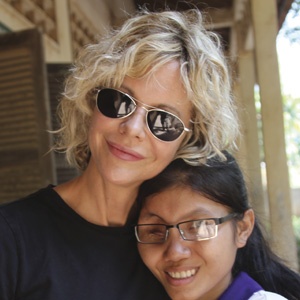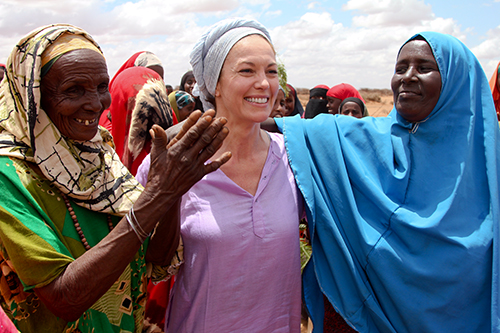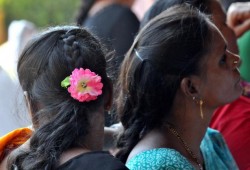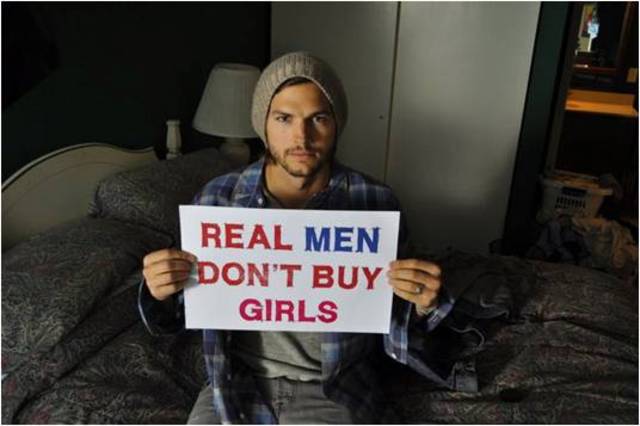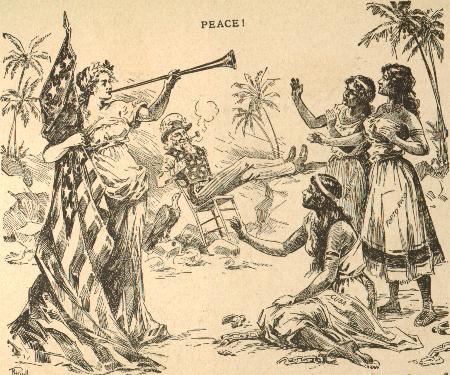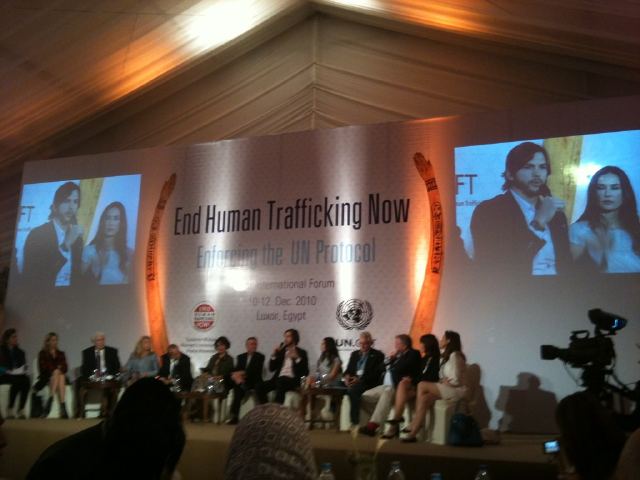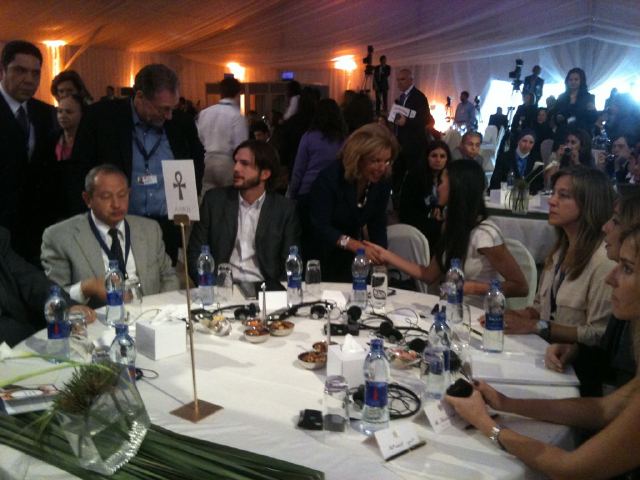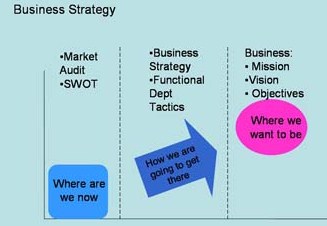 Many wrote to me during the brouhaha about Somaly Mam and Nicholas Kristof as though I were not paying enough attention to it. There are lots of events in the fields of anti-trafficking, the sex industry and now even the Rescue Industry that I glance at and don’t find remarkable enough to comment: after 20 years of observing I find it difficult to be really surprised by anything. While I appreciate how infuriating bogus experts are, I published the following to remind everyone that individual personalities are only superficially important in the now highly institutionalised scheme of things.
Many wrote to me during the brouhaha about Somaly Mam and Nicholas Kristof as though I were not paying enough attention to it. There are lots of events in the fields of anti-trafficking, the sex industry and now even the Rescue Industry that I glance at and don’t find remarkable enough to comment: after 20 years of observing I find it difficult to be really surprised by anything. While I appreciate how infuriating bogus experts are, I published the following to remind everyone that individual personalities are only superficially important in the now highly institutionalised scheme of things.
Somaly Mam, Nick Kristof and the Cult of Personality, 16 June 2014, Jacobin
By Laura Agustín
A Cambodian activist against sex slavery, Somaly Mam, recently resigned from her foundation after an outside investigation confirmed she had lied to attract donors and supporters. The revelations of Mam’s fraudulence are old news, however — Simon Marks’s reports have been appearing in the Cambodian Daily since 2012, and many other debunkings and doubts circulated much earlier among institutions, researchers, and activists trying to reverse unfounded sensationalism about sex trafficking.
Newsweek published some of Marks’s work on May 21, provoking outrage in the New York media establishment — less towards Mam than one of her greatest fans, self-styled slave rescuer Nicholas Kristof. He is accused of hoodwinking liberal-identifying readers and letting down the cause of journalism. Both accusations miss the point.
An editor from this media in-group asked if I would write for them about Somaly Mam’s resignation, having seen tweets indicating I don’t consider it significant. She suggested I write about problems of “accountability” with institutions like Mam’s, along with the “history and failures of the organization and others like it.”
I asked if she was acquainted with my work, mentioning my research on projects to help and save women who sell sex, documented in Sex at the Margins, which originatedthe concept of a “rescue industry.” Since my analysis rarely gets into the mainstream, the focus of anything I do for such outlets would have to explain the basics about that industry. The editor replied that she was not interested in anything so broad. I said if she wanted someone who has studied Mam’s annual reports and the workings of her rescue centers, I have not. I got no reply.
To focus on accountability implies that one accepts that there is a verifiable phenomenon to be accountable about, to espouse the fundamental propositions about human trafficking promoted by government, moral entrepreneurs, and the media which cry that trafficking, especially the kind where women sell sex, is the great scourge of our time. To focus on accountability assumes that the dominant narrative is based on reality, and all we have to do is quibble about individual ethics and demand high standards. This is all wrong.
There are flagrant injustices that need to be addressed regarding undocumented travel and labor, including selling sex. Exploitation of all kinds is rampant, and libertarian claims to bodily autonomy, the adult right to trade sex for money, and “no borders” are not enough. As I’ve been saying for many years, new migration and labor policies can begin to address the problems — not criminalization, policing, the infantilization of women, or raising “rescuer” to a saintly profession. The trafficking hoo-hah is not “myth,” but a terrible misnomer and misframing — the glossing of complex social phenomena into a simplistic idea that fails over and over, even on its own terms.
In the wide field I call the rescue industry (all missions to “help” women who sell sex, or save them from it), one personality like Mam more or less is unimportant. She became a figurehead through a cult of personality, the phenomenon by which people uninformed about a subject look up to an individual as an inspiring symbol, endowing them with expertise and special knowledge, imagining they are leaders. Cults of personality rely on an unquestioning belief that the hero worshipped has the right fine feelings about an issue, perhaps gained through personal experience.
Human trafficking as a cause began to catch on with the general public in part when film stars attached themselves to it, adding patronage of exciting causes to their portfolios. Various UN agencies named actors as “Goodwill Ambassadors,” lending needed color to the endless parade of men in suits (bureaucrats), men in uniform (police), and frowning women that held sway. Such celebrities presumably inform themselves by reading what comes up easily in online searches, which means media reports parroting uncorroborated statistics and sensationalist horror stories.
To make their knowledge seem real, however, and to be able to project their feelings of caring, celebrities make field-visits to rescue centers in poorer countries. A long list of Hollywood and other celebrities have used such visits to demonstrate their empathy — many specifically visiting Mam venues: Mira Sorvino, Ashton Kutcher, Susan Sarandon, Meg Ryan, Demi Moore, Gloria Steinem, Hillary Clinton, Emma Thompson, and many more. I have written many times about visits like these as an expression of colonialism.
In the world of NGOs, visits by a raft of different characters are viewed as an unfortunate but necessary part of survival. Whole days are dedicated to showing outsiders tidbits of projects in the hope that flattering reports will reach donors’ eyes. Those receiving visits carefully orchestrate them to be entertaining and rewarding for visitors, including by arranging photo opportunities. It is totally conventional for the same objects of pity to be wheeled out every time: They have learned their lines and how to behave appropriately, they know how to hug visitors and smile for the camera. It would be too time-consuming to set up a new scenario for every visit.
The repetition of stories by the same inmates is well known, as is the phenomenon by which victims learn to embellish their stories to provoke more sympathy in listeners (including researchers and program evaluators). That these narrations are often exaggerated in performance or fabricated out of whole cloth is so well known in NGO circles as to be banal. Everyone does it, one old hand wrote me.
Those not familiar with this world are upset to discover that Mam made theater for visitors, because they seem to assume that NGOs must be squeaky-clean ethical. But NGOs (even if their tax-status is called nonprofit) are organizations with employees who want careers, security, and decent salaries so they can buy houses, cars, and everything else employees of profit-making businesses want.
NGOs operate in a precarious world of capricious funding in which they are forced to write proposals for projects in vogue with donors, even projects that contradict their own beliefs. NGO workers cultivate an attitude of benevolently caring more about their social causes than others do, but this is identity-formation, not fact — the building of a satisfying self-image to project to the world. These are conventionally career-seeking people, not self-sacrificing saints.
Of course, fabricating stories to get more followers and money is unethical, and Mam seems to have done a lot of it. Inventing a few false victims for public consumption does not, however, prove there are no real victims or that Mam’s activities never helped anyone. This is why the SMF foundation had her resign — so that activities can continue and damage can be limited.
Will any donors lose significant confidence and withdraw funding because of revelations that her story and two others were falsified? I doubt it. Donors do not like to admit they were duped. But if some do stop funding SMF, they will simply shift support to other similar institutions engaged in the same cause, since the money was already earmarked for it. And some new figure with the ability to stir feelings will eventually emerge from the hundreds of groups now dedicated to sex trafficking and sex slavery.
Figureheads and personalities are of little significance, anyway. The anti-trafficking movement is now structurally mainstreamed in overlapping national and international initiatives — bigger, like the US Trafficking in Persons Office and the UN Office on Drugs and Crime, and smaller, like the Swedish Institute. Multinational projects like the Global Slavery Index provide official-looking data on trafficking that rest on the wobbliest of sources.
The machinery is now well-oiled. Personalities are beloved by the general public, but dry technocrats and calculating consultants are in charge, with the regular intervention of opportunist politicians.
Then there are the journalists. A few years ago, a veteran New York literary agent said she could not consider my book proposal because she believed Nicholas Kristof. If he was right, I could not be. Kristof’s flying photo-shoots to the jungle were worth more than my twenty years of research. For members of the liberal mainstream that expect the New York Times to be responsible and unbiased, his protagonism in the sex-trafficking craze has been a moral seal of approval, and those liberals feel betrayed by him.
Never expecting institutions like the Times or the Guardian to be unbiased, I paid little attention to Kristof until late 2011, when he live-tweeted a brothel raid in Cambodia alongside Somaly Mam. When I expressed revulsion at this on my blog, I received hate mail. One was not permitted to question Great White Hunter reporters. I was a nobody — how dare I write on this topic? I responded with The Soft Side of Imperialism: Kristof and the Rescue Industry.
Despite many takedowns, Kristof has maintained his popularity, in another cult of personality that simply refuses to ask critical questions. After Mam’s exposure in Newsweek, Kristof first said mildly that it is difficult to pin down facts in Cambodia, excusing himself by faulting a backward nation. After being upbraided loudly by other journalists, he disavowed Mam in a move even more repulsive than his original adulation. But to complain about his misplaced faith is merely an attempt to shift the blame from his followers’ own original flawed act: allowing a sanctimonious Braggadocchio to define the facts in a complex and contradictory field.
One can understand how people swallow grand claims at the outset of a craze, but not years later, after repeated public failures to find large numbers of self-identified victims, the obvious re-branding of old categories like pimping as “trafficking” in order to inflate numbers of villains, and the steady debunking of myths like the sky-rocketing of sex trafficking at sports events.
Why do supporters whine that Kristof deceived them when they have no one to blame but themselves for refusing to face the truth for so many years? They complain that journalists should be accountable, but Kristof writes on sex trafficking in his columnist identity, on editorial pages where his is not the only mediocrity. He is part of a mainstream media machine that supports the status quo and ignores ideas not originated by old-boy networks.
Sad personal stories constitute the most convincing evidence of suffering presented by figureheads like Mam and Kristof. But even if all these were verifiable, they cannot justify the enormous outlay in time, money, and spirit assigned to this cause over time. And sad stories are much less common than the not-so-sad, less sensational stories told to many dozens of field researchers who have interviewed women who sell sex, many of them undocumented migrants (even leaving aside self-identified professional sex workers). Yet these more complicated stories are disqualified by anti-trafficking adherents who dismiss anything that throws doubt on their crusade.
The current fuss about Kristof and Mam reproduces the cult of personality that caused trouble in the first place. To focus on individuals is to avoid addressing structures. A couple of self-promoting showoffs pale beside proliferating government machinery that now churns out salaries and prestige for thousands worldwide caught up in a movement based on fraud.
–Laura Agustín, the Naked Anthropologist

